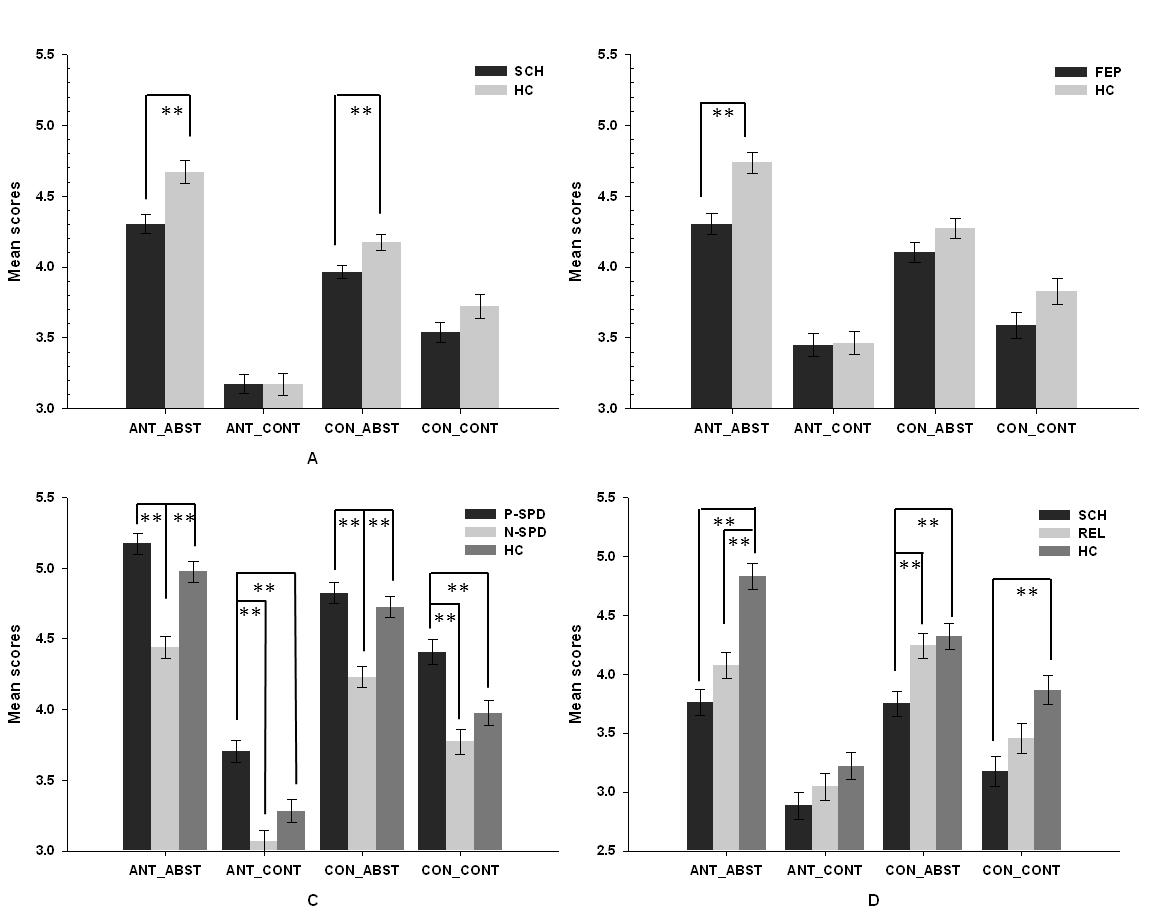
Anhedonia is the diminished capacity to experience pleasure and it is a core feature of schizophrenia associated with poor prognosis. Recent evidence suggests that anhedonia can be divided into anticipatory pleasure and consummatory pleasure. Anticipatory pleasure refers to the ability to maintain and anticipate the pleasure in the future, and consummatory pleasure refers to the ability to experience the in-the-moment pleasure.
Empirical findings have shown dampened anticipatory pleasure but relatively intact consummatory pleasure in people with first-episode and more chronic schizophrenia. However, there is no study having examined anticipatory and consummatory pleasure across the schizophrenia spectrum so far, i.e., people with schizotypal personality features, people with first-episode and chronic schizophrenia as well as their non-psychotic first-degree relatives.
Most of the findings of anticipatory and consummatory in schizophrenia are limited to the western samples. One of the pioneering work done by Dr. CHAN Raymond from the Institute of Psychology of Chinese Academy of Sciences showed that there was cultural variation demonstrated in the western and Chinese participants in reporting anticipatory and consummatory pleasure using the Temporal Experience of Pleasure Scale (TEPS). The Chinese participants reported factors that detailed the experience of contextual and abstract information in addition to the general anticipatory and consummatory pleasure reported by their western counterparts.
Therefore, investigating the features of anhedonia in each stage of the schizophrenia spectrum may illuminate where in the course of the illness different hedonic deficits emerge and thus suggest points of intervention. Dr. CHAN Raymond and his team together with Prof. KRING Ann from the University of Berkeley have administered the TEPS to 364 patients with schizophrenia to confirm the factor structure of the TEPS in Chinese people with schizophrenia.
The researchers then examined anhedonia in people across the schizophrenia spectrum. They recruited 72 first-episode and 45 chronic schizophrenia people, 210 people with schizotypal traits, and 45 first-degree relatives of people with schizophrenia and 45 healthy controls.
The results showed that deficit in abstract anticipatory pleasure appeared to be most severe in people with chronic schizophrenia, dampened abstract consummatory pleasure was observed in people with schizotypal personality features and in people with chronic schizophrenia, and both abstract anticipatory and abstract consummatory pleasure were negatively correlated with negative schizotypal personality features and schizophrenia symptoms.
The present findings support a four-factor structure of the TEPS in Chinese people with schizophrenia and suggest that abstract anticipatory pleasure deficits are present early in the course of the illness and may persist. They highlight the importance of cultural considerations in studying anticipatory and consummatory pleasure, and that abstract anticipatory pleasure is particularly salient among people in China.
This study was supported by the grant from the “Strategic Priority Research Program (B)” of the Chinese Academy of Sciences (XDB02030002), the National Science Fund China, and Beijing Training Project for the Leading Talents in S & T.
The paper is now available online in Schizophrenia Research.

Figure 1. The differentiation of the TEPS score based on four-factor framework. First-degree relatives of schizophrenia and people with fist-episode schizophrenia showed dampened abstract anticipatory pleasure, while individuals with schizotypal personality feature and people with chronic schizophrenia showed both impaired abstract anticipatory and abstract consummatory pleasure. First-degree relatives were featured with higher abstract anticipatory pleasure experience than people with chronic schizophrenia. *, p < 0.05; **, p<0.01. (Image by IP)

86-10-68597521 (day)
86-10-68597289 (night)

52 Sanlihe Rd., Xicheng District,
Beijing, China (100864)

